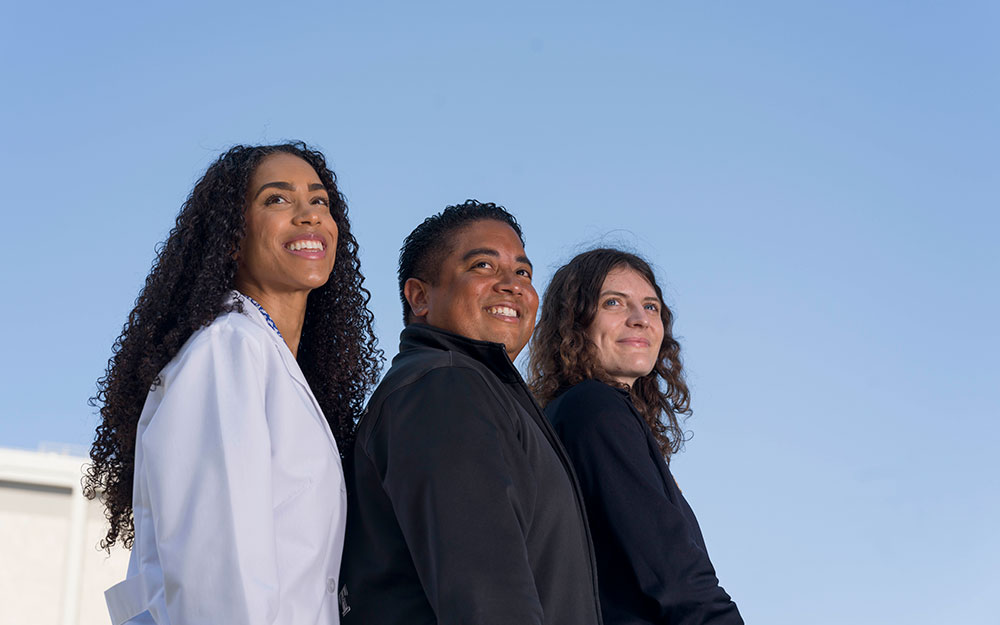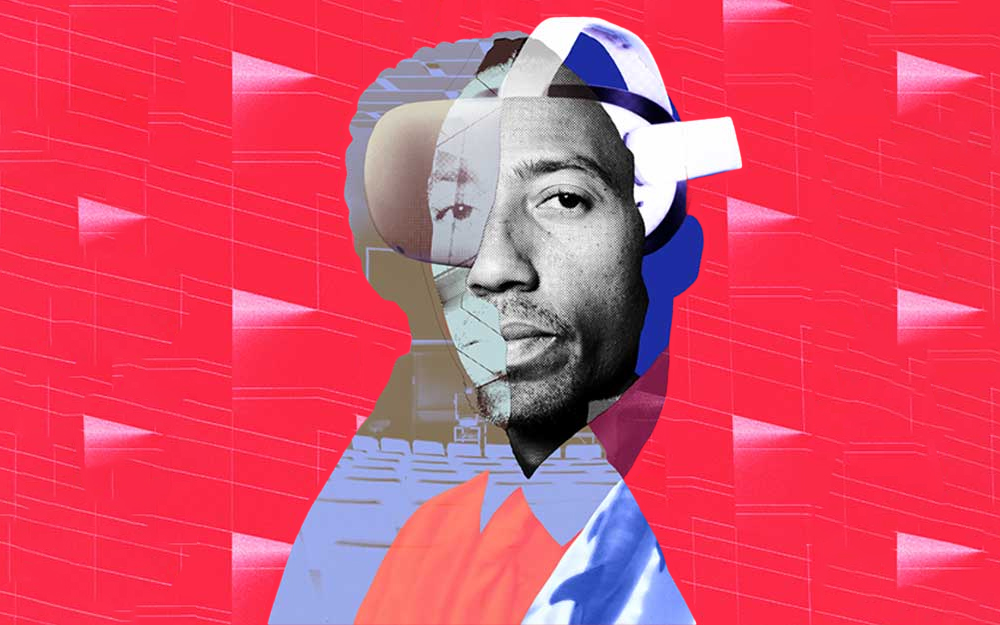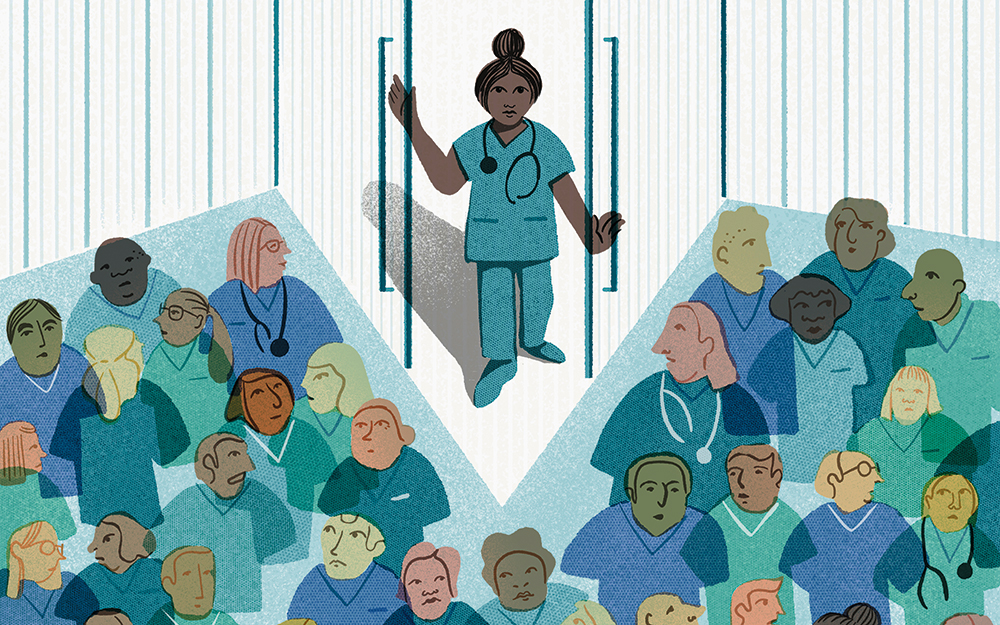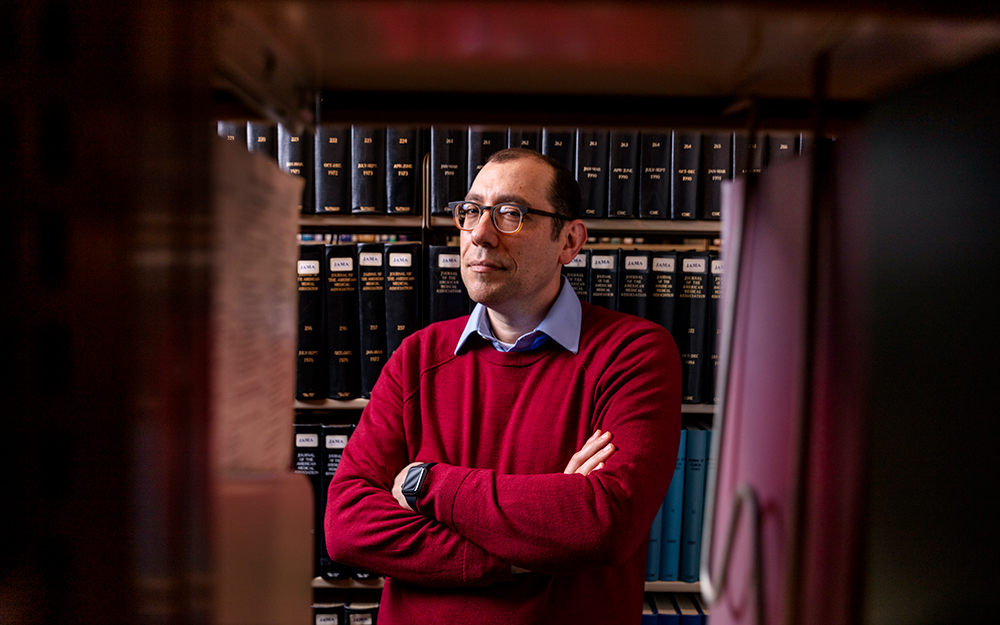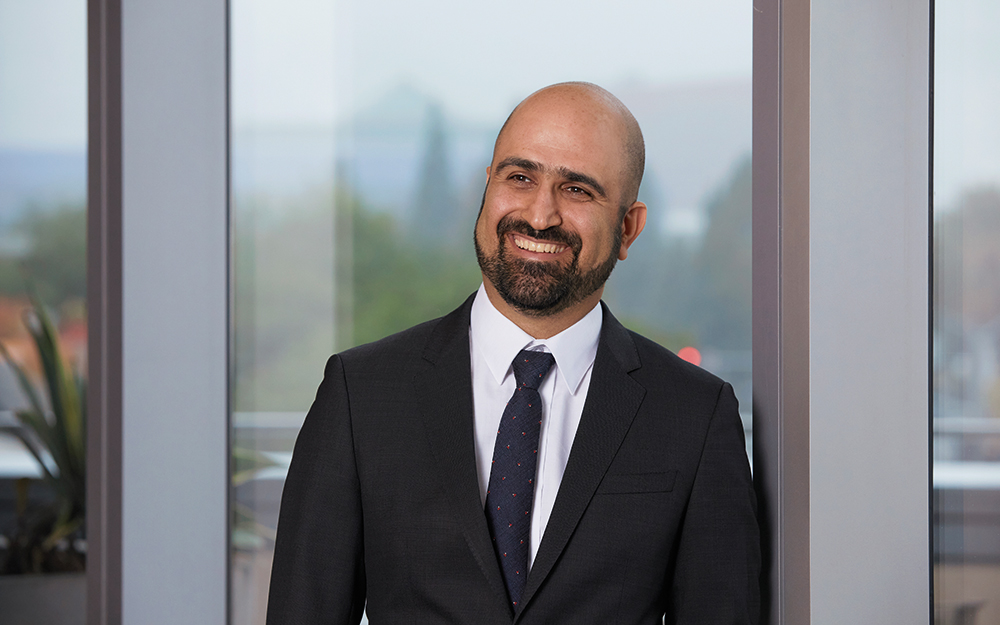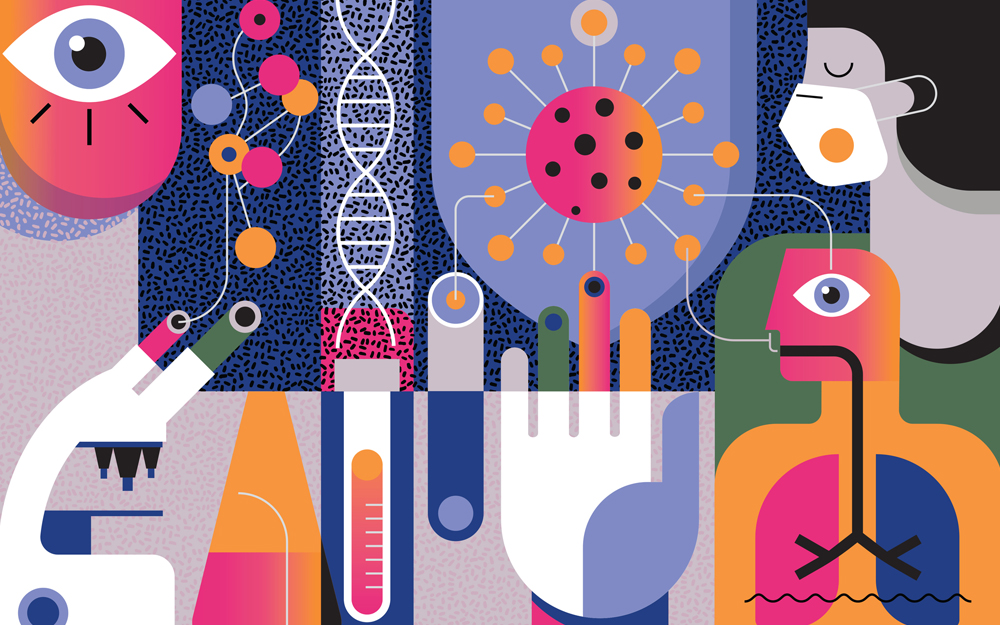A Master's Student Studies Reiki for Hospital Patients
Date
November 11, 2021
Credits
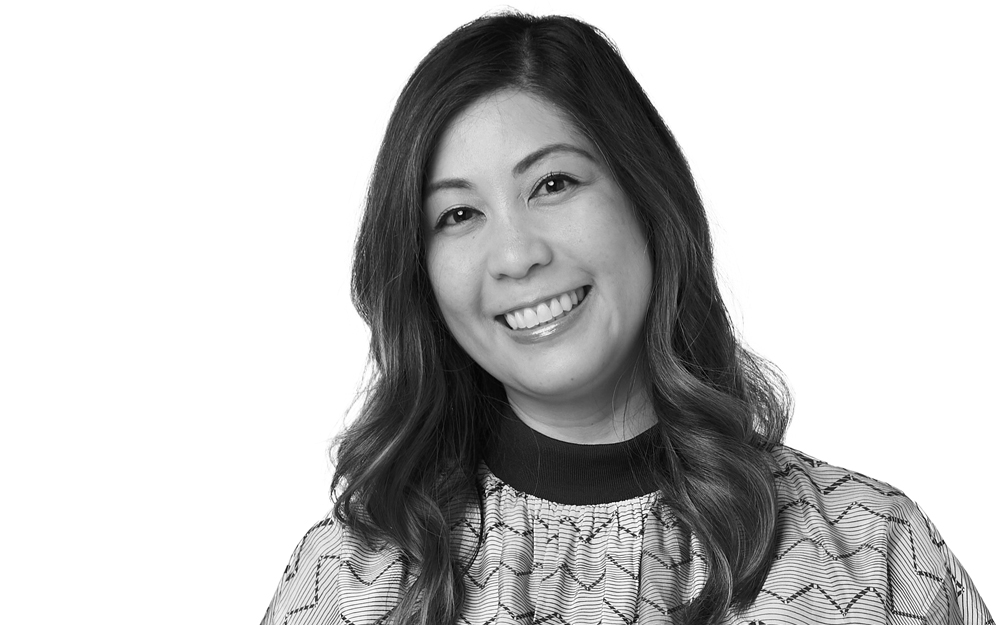
Date
November 11, 2021
Credits
Medical providers featured in this article
In Brief
{{cta-block}}
Christine Easterling was born at Cedars-Sinai. But growing up in Los Angeles, she set her sights on working in Hollywood, not healthcare.
"When I was a kid, I could recite movies, like Adventures in Babysitting and Wayne's World, line by line," Easterling says. "My parents would say to me, ‘Why don't you remember math the way you remember movies?'"
Easterling never imagined that she'd end up studying the connections between numbers and the stories behind them while earning a master's in Health Delivery Science (MHDS)—and doing it where her own life story began.
Easterling's mother, Joyette Jagolino, was one of six nursing graduates who moved together from the Philippines to work at Cedars-Sinai in 1980. Jagolino, who retired in 2020 after 40 years at Cedars-Sinai, always wanted her daughter to become a nurse, but Easterling was more interested in pursuing a creative field.
After graduating from college, she became a television producer, working mostly on unscripted and documentary shows in L.A. Then, in 2007, the Writers Guild of America strike halted production on many shows and Easterling was offered a position in Hong Kong with an L.A.-based apparel company. She lived in Asia for the next decade, working in China, Thailand, Indonesia and Sri Lanka.
In the Blog: 7 Reasons Why I Enrolled In The Master's Degree in Health Delivery Science Program
In 2017, she and her family returned to L.A. and she got a job at Cedars-Sinai. She's currently a lead administrative assistant for Capacity Management. In 2019, she decided to apply for the MHDS program.
"In order to be a leader, to spark change and innovation, I needed to develop more quantitative skills. I wanted to get a better grasp on biostatistics and analyzing health data," Easterling says.
While many students in the MHDS program have a nursing or medical degree, Easterling was an outlier. However, she found that her creative abilities were an asset when it came to qualitative data, which is subjective and open to interpretation. Qualitative data typically involves looking at participants' responses to questionnaires and identifying common themes.
"The qualitative methods I was using were similar to what I used when working in documentary TV," Easterling says. "When making a documentary, you start with curiosity, something you want to explore. Then, you have to figure out how to tell the story and make it resonate with the audience."
Along with her daily duties, Easterling volunteers with the Spiritual Care department to offer Reiki to patients. Reiki is a Japanese healing technique intended to promote relaxation, serenity and wellbeing in those who practice it.
In the Blog: Faces of Cedars-Sinai: First-Year Student Brian Minton
Easterling's experience with Reiki informed her master's program capstone project, which looked at the impact of Reiki on pain scores for female cancer patients at Cedars-Sinai. She used a mixed-methods approach for this project, using both quantitative and qualitative data.
Celina Shirazipour, PhD, a research scientist in the Cancer Research Center for Health Equity at Cedars-Sinai, says that the need for qualitative data can sometimes be overlooked in healthcare.
"Many times in healthcare, people think about numbers—increases or decreases in biomarkers or patient-reported outcomes, length of stay, etc.," says Shirazipour, who was a mentor to Easterling during her capstone project. "However, what can be lost in all the numbers is the person: the patient, their experiences, their story."
Shirazipour says that qualitative research provides richness and depth, allowing investigators to hear from the patient and their loved ones in their own words, and make sure their needs are central to their care.
"With Easterling's capstone project, the pain scores gave us an overview of whether Reiki was improving an important health outcome," Shirazipour says. "The qualitative data brought the Reiki experience to life. What is the pain experience like for patients? What does it feel like to receive or deliver Reiki? What complexities exist in trying to treat pain? Together, these built a compelling story for the value of Reiki."
Brennan Spiegel, MD, MSHS, director of the MHDS program, says that Easterling's research on Reiki illustrates the importance of going "beyond the pill" in modern medicine.
"Pharmacology has its time and place but patients also benefit when we augment traditional medical treatments with evidence-based, mind-body therapies like Reiki," Spiegel says.
For Easterling, the beauty of qualitative research is that "it's messy and sometimes chaotic," she says. "After you've collected the data, the interesting part is determining the meaning behind the numbers and what we can do with the information."
You’ve Read Our Research. Now Come Learn With Us.
Cedars-Sinai offers multiple accredited graduate degree programs:
PhD in Biomedical Sciences: One of the most sought-after PhD programs in the U.S., it merges scientific and translational medicine curricula with mentoring to provide students with broad exposure to clinical medicine.
Master’s Degree in Health Delivery Science (MHDS): This program is designed to prepare graduates for a successful career in emerging healthcare fields, including digital health science, mobile health, health technology assessment, big data analytics, performance improvement and health economics.
Master’s Degree in Magnetic Resonance in Medicine (MSMRM): This discovery program is focused on training graduate students to become leaders in the field of magnetic resonance as it is applied to clinical practice.
National Institutes of Health-Funded Postdoctoral Training Programs: Cedars-Sinai mentors graduates with doctoral degrees from a wide range of scientific and biomedical disciplines, with the goal of optimizing their career prospects. These opportunities actively encourage postdoctoral students to pursue careers in academic medicine or other research-related areas.
